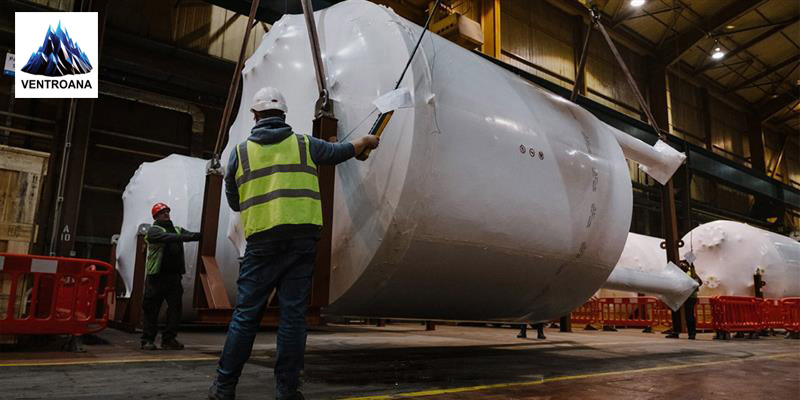Microgrid
February 27, 2024

Supervisory Control and Data Acquisition (SCADA) is a system used to assist in maintaining efficiency, data processing, & communication problems, and SCADA ensures faster solutions. However, this system is used in many industries including in the nation’s critical infrastructure. In this article, we’ll provide a high-level introduction to SCADA and SIS services, I hope so you’ll get all the information here that you are searching for.
Both services are interlinked, but for your better help, we will discuss SCADA and SIS services separately.
Supervisory Control and Data Acquisition (SCADA) is an ICS with a data-gathering & processing mechanism. SCADA can apply appropriate functional controls that consist of long distances. SCADA is a system that was launched to handle the multiple challenges faced when various information media are employed, such as; phone lines, satellites & microwave transmissions.
SCADA systems are usually employed in critical infrastructure, power distribution transmission & pipeline systems environments. This kind of ICS is shared slightly more than dedicated.
SCADA is a new but naturally evolved procedure for ensuring process control to the traditional comprehensive location of network applications. From a functional point of view, the methodology of system interaction (view & control) remains the same. Also, it provides a straightforward way to adopt a service-orientated SCADA system.
It’s a great approach because of the excessive availability and reliability of the internet in remote locations & the continued focus for councils to manage in the most cost-efficient manner for ratepayers.
The water and wastewater industry is very logical & instantly valid for cloud-based industrial solutions across the Australia & New Zealand region. SCADA systems ensure solid advantages as follows:
Safety Instrumented Systems (SIS) is an exclusive system responsible for facility functional safety & assuring emergency stop actions are available within safe limits. SIS is a fantastic system that mitigates the facility’s risk by employing Safety Instrumented Functions. When a tank is overfilled, the SIF is triggered, and the SIS is acknowledged by filling the tank to a level that is defined as safe.
This step discusses SCADA’s importance and its ultimate benefits.
Traditional SCADA and SIS services remain current for less than a handful of years before needing significant capital expenditure to migrate to new software and hardware revisions. However, adopting SCADA and SIS services permits a quick remedy to this issue, where the system remains evergreen in all the processes.
A professional team of Cloud SCADA engineers makes sure minor & major revisions are evaluated for operational compatibility before system-wide roll-out, ensuring those updates don’t negatively affect operations.
With limited technical resources within regional & rural councils, the ongoing problem of continuously training internal staff in software and engineering is amazingly simplified. SCADA and SIS services also cater to staff movements or loss of experience to which the field is exposed.
Furthermore, the eradication of unsure external labor costs through the adoption of exceptional Cloud SCADA engineers. They can maintain the whole system nationwide. So, the system upkeep & maintenance is shifted towards a continuous operational expenditure model. It is perfect for saving councils thousands of dollars over the procedure lifecycle compared to the traditional SCADA system methodology.
Technological change demands controlled management to shield the process reliability, quality, availability & safety. However, these are all things subject to complex certification & and validation of the process.
So, innovative and more elaborate cyber security risks make shields an ongoing issue. This level of complexity is reduced when a large amount of security can be employed, maintained, and managed continuously as an essential part of the SCADA as a Service solution. Application safe listing to help prevent malicious software and unapproved programs from running
As councils overcome costs, the strain on project engineering & and service departments upgrades exponentially. However, this leads to the requirement to contract external labor to mitigate all the gaps in technical resources.
SCADA and SIS services invariably do not overcome the engineering costs or capacity to thoroughly evaluate & validate a traditional SCADA solution before enterprise-wide rollout.
SCADA stands for supervisory control and data acquisition; a type of computer system meant to gather and quickly analyze real-time data. These systems are commonly used within production facilities and industrial plants.
Some industries that utilize SCADA in their regular operations include water & wastewater systems, electric generation, transmission, and distribution systems. Furthermore, oil and gas systems are included in it. Manufacturing plants, food production facilities & mass transit systems also rely extensively on SCADA
It is partnering with a technology partner that has both a national & international pool of experts Cloud SCADA engineers. We support personal and direct management of R&D & and the SCADA roadmap. However, it will lead you towards an entirely new level of expertise ensured by councils.
One that comes up with the operating system is evaluated and validated, ready to operate on system-wide deployment. Furthermore, Ventro Analytics ensures maximum security that has been provisioned for following local governmental rules, regulations, and guidelines.
You can contact Ventro Analytics for all types of SCADA and SIS services.
Tags:

Successful Implementation of Green Hydrogen in Power Plants
Discover how green hydrogen revolutionizes power plants with sustainable energy solutions, reducing ...

Driving Innovation and Resilience: Insights from the 10th Annual Energy Supply C...
Gain insights on driving innovation and resilience at the 10th Energy Supply Chain & Procurement Sum...

Understanding EPC Engineering: Key Concepts Explained
Discover the essentials of EPC Engineering, covering contracts, project phases, and roles of EPC con...